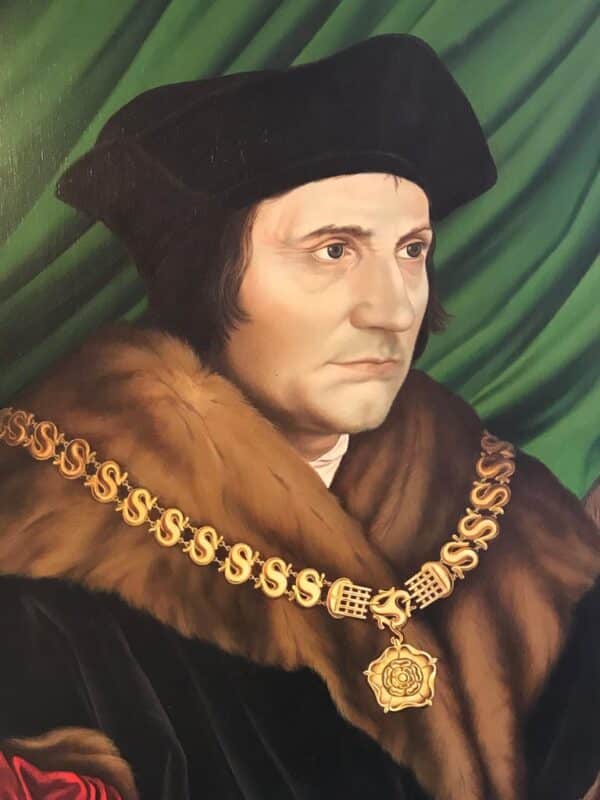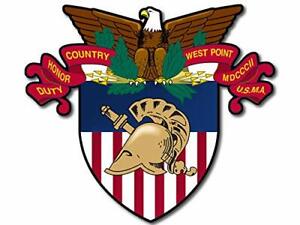My friend and West Point classmate, Eric Paternoster, died about three weeks ago. We had known each other since 1970 when we entered the US Military Academy and were assigned to Company A-2. Attended his Celebration of Life ceremony in Cincinnati last Friday and wrote down some of my thoughts on him.
A Man for All Seasons
As we look back at Eric Paternoster, it would be quite understandable to call him a “Renaissance Man” – someone with extraordinarily broad and comprehensive knowledge, and with expertise in multiple disciplines. That was certainly true for Eric, who graduated from the United States Military Academy at West Point in 1974, served as an airborne, ranger, infantry officer, earned a graduate degree from the University of Cincinnati, and worked as a senior consultant with Accenture, followed by Ernst & Young, and finally with Infosys as the CEO of Infosys Public Services. A “Renaissance Man”? Certainly.
But Eric was much more. Five-hundred years ago, author Robert Whittington coined the phrase “A Man for All Seasons” describing Sir Thomas More, venerated in the Catholic Church as Saint Thomas More, an English lawyer, judge, social philosopher, author, and statesman – and perhaps most importantly a man who stood up to King Henry VIII, and for this offense was beheaded. It is said that the executioner was so distraught that he begged for More’s pardon before carrying out his grim task. To Whittington, “A Man for All Seasons” was a person ready to take on whatever life threw at him; a person suited for all occasions; who does not get flustered easily, but keeps a calm, efficient demeanor; a person who has proven to be extremely reliable and trustworthy; acts with grace and aplomb, but never demands to be the center of attention; and perhaps most importantly, follows their conscience, and acts correctly even when others may choose a less honorable path.
In 1970, after completing Beast Barracks at West Point, Eric and roughly thirty other classmates reported to their new home, Company A of the 2nd Regiment Corps of Cadets. One of their first orders of business was to elect their class honor code representative who would instruct and lead them over the next four years in a code of conduct that simply states: “A cadet will not lie, cheat or steal, or tolerate those who do.” The penalty for failing to follow the code was equally simple; a cadet could be expelled from the Corps. Eric firmly believed in the honor code and believed all should follow it. Eric also believed it was his duty to explain the code fully to all cadets and to also fight for any cadet that Eric – following his conscience – believed did not willfully commit an honor violation.
Regulations were another matter. Eric was of the belief that the new Monday Night Football program was almost a Constitutional right to watch – even if the end of that game came after Taps, and thus there were numerous occasions when he was apprehended in the company dayroom, game on and lights off. And more than once, when Eric was caught in this abhorrent transgression, he refused to divulge who might or might not have been watching the game with him, but who had scampered behind a large couch and avoided apprehension, while Eric took the rap.
National boundaries could not contain this “Man for All Seasons.” With Infosys Public Services, Eric helped fuse American and Indian knowhow, culture and intellect – along with expertise from personnel of several other nations – to forge boundaryless public sector synergies. Eric would leave no stone unturned and once his vision included taking a large number of company employees to the Gettysburg Civil War Battlefield in southern Pennsylvania. However, rather than simply describing a military engagement from some 159 years ago – the technology and tactics having little to do with today – Eric used the past to stimulate a day-long examination of the future for Infosys: who in the organization was monitoring the technology of present and future competitors? How does an organization train, develop and retain quality employees and prepare them to be future leaders? How do leaders transmit and ensure understanding of their vision of success to the entire organization?
And like every person for all seasons, Eric would be the first to credit others for his own success: his West Point classmates; his Army comrades; his business associates all along the way; his beloved University of Cincinnati; his family; and most of all his wonderful wife Diana Paternoster (nee Coleman).
Eric, we miss you in so many ways. But we also thank God for the opportunity of having you in our lives. Pride of the Corps. As for everyone who never met Eric, I would submit this old poem by Rudyard Kipling that captured our friend in so many ways. It is called If.


